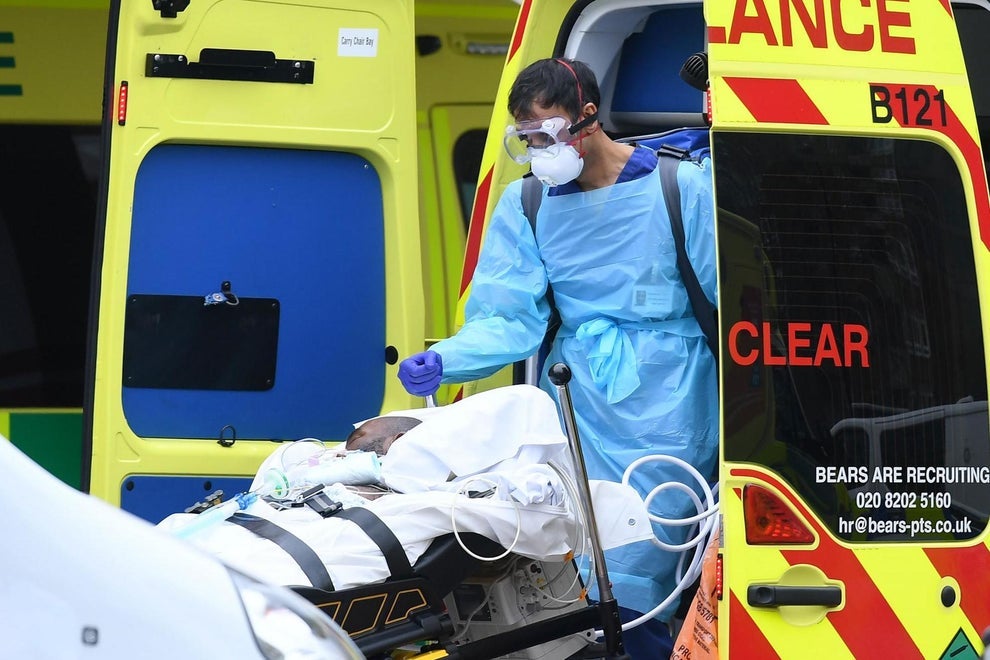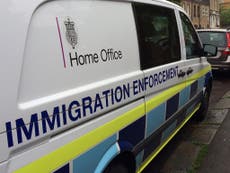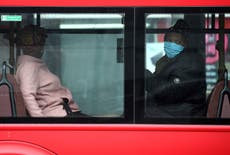Sadiq Khan demands ‘decisive action’ to protect Bame communities as Covid cases soar
Exclusive: Ministers accused of failing to take ‘simple steps’ to reduce deaths among ethnic minorities

Your support helps us to tell the story
From reproductive rights to climate change to Big Tech, The Independent is on the ground when the story is developing. Whether it's investigating the financials of Elon Musk's pro-Trump PAC or producing our latest documentary, 'The A Word', which shines a light on the American women fighting for reproductive rights, we know how important it is to parse out the facts from the messaging.
At such a critical moment in US history, we need reporters on the ground. Your donation allows us to keep sending journalists to speak to both sides of the story.
The Independent is trusted by Americans across the entire political spectrum. And unlike many other quality news outlets, we choose not to lock Americans out of our reporting and analysis with paywalls. We believe quality journalism should be available to everyone, paid for by those who can afford it.
Your support makes all the difference.Ministers have been accused of failing to take “simple steps” to protect black, Asian and ethnic minority (Bame) communities during the pandemic, with political leaders calling for "decisive action" to help groups that suffer disproportionately high rates of deaths and critical illness from coronavirus.
Charities and politicians, including London mayor Sadiq Khan, are calling on the government to implement measures to better monitor the impact of the virus on Bame groups “without delay”, as infections soar during the third wave of the pandemic.
Around one in 50 people in the UK are thought to currently have coronavirus, with the figure as high as one in 30 in London, according to the Office for National Statistics.
Numerous studies have shown the disproportionate effects of coronavirus on ethnic minority communities. Findings from Institute for Public Policy Research (IPPR) and the Runnymede Trust in October showed that there would have been 58,000 extra deaths during the first wave if the white population faced the same risk factors as the black population.
An evidence review by the Mayor’s Office, published earlier in the summer, meanwhile found that black Londoners were at almost twice the risk of death from Covid-19 than white Londoners, with Pakistani and Bangladeshi men facing similarly high risks.
And a government-commissioned review by Public Health England in June revealed that and social inequality had contributed to a disproportionally high risk of Covid-19 for Bame communities.
Political leaders and charities said the government should make mandatory the collection of ethnicity data in the recording of deaths, as well as in testing and the delivery of vaccinations, in order to mitigate the impact on ethnic minority groups.
A letter from Mr Khan to Downing Street, sent on Friday and seen by The Independent, called on Boris Johnson to take “decisive action” to protect Bame communities in London and around the country, saying it is “up to the government” to address the underlying structural causes linked to these disproportionate risks.
“As we enter the third national lockdown having seen exponential growth in cases over the past month in the capital, I write to you again to ask that you heed the lessons learned from the first wave of this virus and immediately take steps to protect those who are likely to suffer disproportionate impacts from Covid-19,” the letter states.
In October, the Equality Hub, which sits within the Cabinet Office, announced the intention to make the recording of ethnicity on death certificates mandatory, after coming under pressure from Mr Khan to do so. A spokesperson told The Independent work was underway and would be completed in “due course”.
The London mayor said he was “pleased” that the government had heeded his calls, but warned that it must now implemented “without delay”. He said it was also “vital” that ethnicity data collection was embedded as an integral part of the testing and the delivery of vaccinations.
“It is crucial that this is put in place immediately. If it is not done, it will be clear that the lessons of the first wave about how this virus exacerbates inequalities and affects particular communities were not learned,” said Mr Khan.
“Given what we now know about how the virus affects Bame communities, there is no excuse for continued inaction.”
Shadow equalities minister Marsha de Cordova echoed his concerns, saying: “Months ago we called on the government to implement a plan to protect black, Asian and ethnic minority people. We are well into the second wave of the pandemic, yet the government have failed to respond effectively and quickly enough.
“It is vital they act now and gather and record robust ethnicity data, fix test and trace and deliver a vaccination programme of at least two million jabs a week, ensuring that those most at risk are vaccinated as soon as possible.”
Campaigners warned that the disproportionate death rates among ethnic minorities was in part a consequence of the UK’s hostile environment for immigrants, and called for elements of the policy that deter people from seeking help to be lifted.
Last April, charities warned that undocumented migrants were dying from Covid-19 because they were too afraid to seek help, prompting calls for the immediate suspension of charging for migrants and all associated data-sharing and immigration checks. However, both policies remain in place.
Chai Patel, legal policy director at the Joint Council for the Welfare of Immigrants, said the hostile environment policies had “deadly consequences” during the pandemic. But that despite warnings, ministers continued to place the lives of migrants – many of whom are in key roles such as doctors, carers and delivery workers – at additional risk.
“The government has refused to take simple steps to protect them. They've kept the hostile environment in place, pushing people into exploitative work, unsafe housing, deterring them from accessing NHS care, and preventing them from accessing state support when they need to self-isolate or shield others,” he said.
“This is bad for public health, it’s bad for our essential services that rely on migrant labour, and it is contributing to the disproportionate numbers of Bame deaths under Covid. It is a stain on our national conscience.”
A spokesperson for the Equality Hub said: “Throughout the Covid-19 pandemic, we have prioritised protecting the most vulnerable in our society.
“The Minister for Equalities is leading vital work to ensure that we better understand and minimise the key risk factors that are impacting on these communities, and significant action has already been taken.
“We have invested in a strong package of measures to target messaging, develop the data we have available and make sure everyone is as safe as possible. This means that people from all backgrounds have access to the latest public health information and guidance."



Join our commenting forum
Join thought-provoking conversations, follow other Independent readers and see their replies
Comments